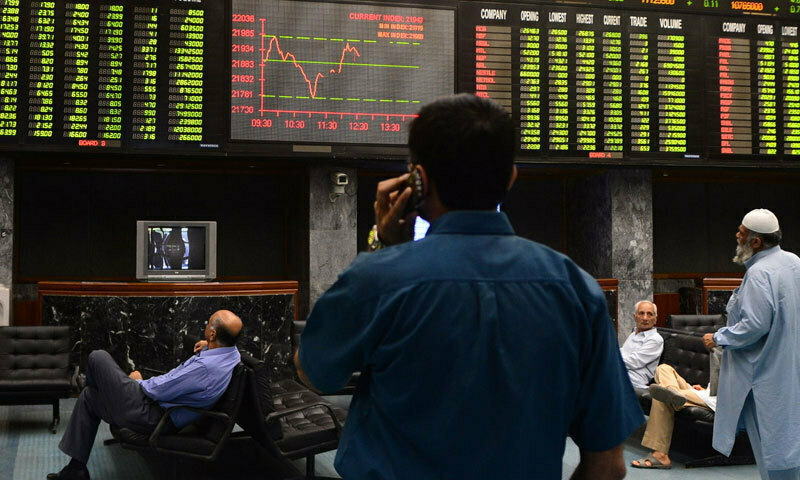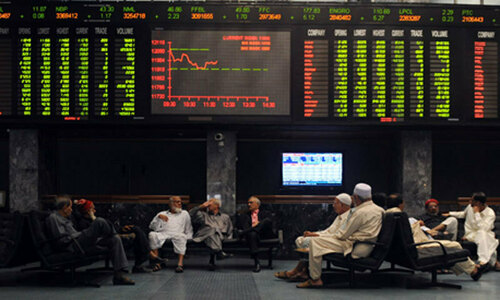Pakistan Stock Exchange's (PSX) benchmark KSE-100 index shed 885.3 points on Monday — it's first session after a higher-than-anticipated hike in interest rate announced by the State Bank of Pakistan (SBP) last week.
The week's opening session came hours after the International Monetary Fund (IMF) announced that it has reached a staff-level agreement on steps for revival of a loan package. The session opened on a positive note and made an intraday high of 46,601.90 points within the first half an hour.
However, the bears later took over and caused the index to plunge to 45,716.60 points at around 3.30pm.
According to Intermarket Securities' head of equities, Raza Jafri, "Despite a staff-level agreement with the IMF, the market is giving precedence to Friday's sharp 150bps interest rate increase. This is because further interest rate increases are expected in the next few MPC meetings.
"Furthermore, it would take some time — perhaps a few weeks — before the approval of the IMF's Executive Board, which might wait for the remaining prior actions such as the removal of tax exemptions and SBP Act before giving formal approval for program resumption."
Earlier in the day, the IMF released a statement, saying it had reached a staff-level agreement with Pakistan on policies and reforms needed to complete the sixth review under the $6 billion Extended Fund Facility (EFF) which has been 'in recess' since April.
The agreement is subject to approval by the Fund's Executive Board, following the implementation of prior actions, notably on fiscal and institutional reforms, the IMF said. The approval of the agreement will make available 750 million in Special Drawing Rights (SDR), equivalent to $,1059m, it added.
This would bring the total disbursements under the programme to $3,027m and help unlock funding from bilateral and multilateral partners, according to the IMF statement.
Meanwhile, the SBP had raised its benchmark interest rate by 150 basis points to 8.75pc on Friday as it grappled with surging inflation and uncertainty.
The government's policies would help safeguard the positive near-term outlook, the IMF stated, predicting that Pakistan's economic growth rate would reach or go beyond four per cent in the current fiscal year and 4.5pc in FY23.
It noted that inflation in the country remained high, adding that it "should start to see a declining trend once the pass-through of rupee depreciation is absorbed, and temporary supply-side constraints and demand-side pressures dissipate".














































